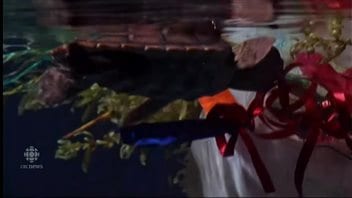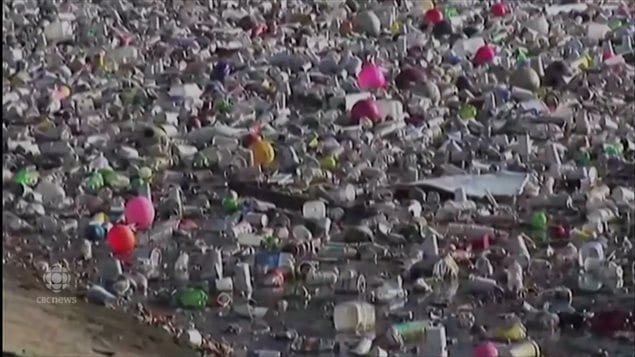Switching to plastic that is biodegradable will not solve the massive problem of plastic in the world’s oceans and the damage it does to marine creatures and the environment, says a new report from the United Nations. The UN Environment program (UNEP) estimates that as much as 20 million tonnes of plastic get into the oceans each year.

Not that biodegradable in the sea
The problem is that plastics do not biodegrade easily in the ocean. There is a standard the products have to meet to be considered biodegradable, and those do not match what actually goes on in the environment, says Peter Kershaw, an independent marine scientist and author of the study.
“(The) standards apply to conditions which you only find inside an industrial composter,” he says. “That’s where temperatures get up to 50 degrees Celsius and the material is maintained at that temperature for many weeks…In the actual environment those conditions are never met.”
Listen
No real decrease in plastic litter
The report says that adopting products labelled biodegradable will not actually decrease the amount of plastic litter in the seas.
Too often dead sea turtles are found to have eaten plastic bags which they probably mistake for jellyfish. Fish and sea mammals get tangled in discarded fishing nets.
And when plastics break up into microplastic particles up to five millimetres in diameter, they are often ingested by birds, fish, mussels, worms and zooplankton, says UNEP. “Microplastics also facilitate the transport of harmful microbes, pathogens and algal species,” says its news release.
‘No quick fixes’
The report concludes that “there are no quick fixes” and that there have to be better ways to manage the life cycle of plastics to reduce the harm on the world’s oceans and other ecosystems.







For reasons beyond our control, and for an undetermined period of time, our comment section is now closed. However, our social networks remain open to your contributions.